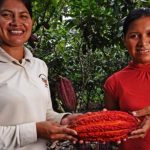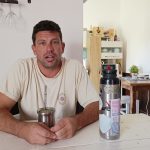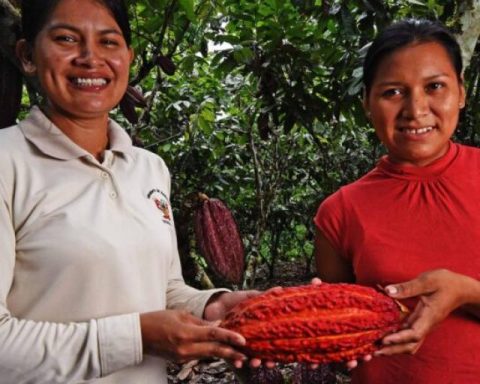Illegal gold mining reached a record level last year in the Yanomami indigenous reserve, the largest in Brazil, according to a report released Monday, which includes stark accounts of abuses by miners, including sexual extortion of women and girls. .
The area marked as “garimpo,” or illegal gold mining, in the Yanomami reserve in the Amazon rainforest increased 46% in 2021, to 3,272 hectares, the largest annual increase since monitoring began in 2018, according to the report from the Hutukara Yanomami Association (HAY), an indigenous NGO.
“This is the worst time for encroachments since the reserve was established 30 years ago,” the indigenous rights group said, in a report based on satellite imagery and interviews with residents.
“In addition to deforesting our lands, the illegal mining of gold and cassiterite (a key ingredient of tin) in the Yanomami territory has caused an explosion of malaria and other infectious diseases (…) and a terrifying wave of violence against the indigenous peoples. indigenous people,” the report added.
The Brazilian Ministry of the Environment and Funai, the official body in charge of indigenous affairs subordinate to Justice, did not respond to requests for comment.
Federal prosecutors said they would investigate the allegations in the report with a view to filing possible criminal charges. They also assured that they had already filed an appeal last month aimed at forcing the government of Jair Bolsonaro to “resume protection actions and police operations against the illegal ‘garimpos’ in the Yanomami reserve.”
Illegal mining has skyrocketed in the Amazon in tandem with rising gold prices in recent years.
Mining destroyed a record 125 square kilometers of the Brazilian Amazon last year, according to official figures.
Illegal miners with links to organized crime are accused of numerous abuses in indigenous communities, including poisoning rivers with the mercury used to separate gold from sediment and sometimes deadly attacks on residents.
The report was published at a time when Bolsonaro is promoting a project in Congress to legalize mining on ancestral lands.
The Yanomami, one of the most iconic groups in the Amazon who live in the Brazilian states of Amazonas and Roraima (north region), recounted a harrowing series of abuses.
They denounced cases of miners who gave them alcohol and drugs and then sexually abused women and girls. They also said that the miners often demanded sex in exchange for food.
“Indigenous women see the miners as a terrible threat,” said HAY.
The Yanomami reserve extends over 9.7 million hectares in northern Brazil, with around 29,000 inhabitants.









